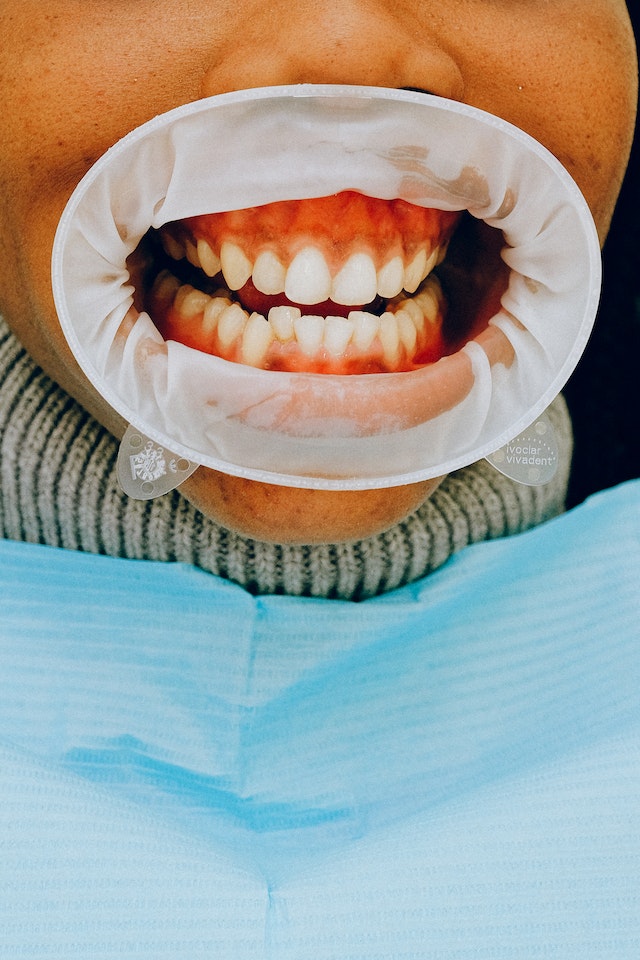Jun
21

Maintaining optimal oral health extends far beyond just the sparkle of your smile. Often, changes in your oral health can serve as a reflection of your overall health status. One such change is receding gums, which, for those who develop them over a short period of time, can be an alarming sight. But can it be a sign of underlying health conditions? Let’s take a look.
What are receding gums?
Receding gums, also known as gingival recession, occur when the margin of the gum tissue that surrounds the teeth wears away, exposing more of the tooth, or the tooth’s root. This process can leave the tooth exposed, often resulting in sensitivity, discomfort, and, in extreme cases, tooth loss.
While a slight recession is not uncommon, particularly as we age, pronounced or rapid gum recession is a cause for concern. It is crucial to understand that gum health is a significant part of overall oral health, and neglecting signs such as receding gums can lead to serious complications.
What can cause receding gums?
Gum recession can be attributed to a variety of causes, some of which are directly related to oral health, while others are systemic:
Oral hygiene
Poor oral hygiene is a common contributor to gum recession: irregular or improper brushing, lack of flossing, and neglecting regular dental cleanings can lead to the buildup of plaque and tartar, causing gum inflammation and eventual recession. Furthermore, aggressive brushing or using a hard-bristled toothbrush can also wear away gum tissue.
Genetics
However, it’s not just your oral care habits that can impact your gums. Genetic factors also play a significant role in gum health, and some people are simply more genetically predisposed to gum disease, which can lead to recession if left untreated. Similarly, hormonal changes in women, particularly during puberty, pregnancy, and menopause, can make gums more susceptible to recession.
Misaligned teeth or an improper bite can also contribute to gum recession due to the uneven force exerted on the gums and bone.
Can receding gums be a sign of underlying health conditions?
Receding gums can indeed act as indicators of certain underlying health conditions. For instance, studies have suggested a strong link between gum disease (periodontitis), a leading cause of gum recession, and systemic diseases like diabetes and heart disease.
This is because people with diabetes often suffer from gum disease due to impaired blood sugar control, which in turn can lead to gum recession. Conversely, severe periodontitis can also affect blood glucose levels, establishing a two-way relationship between these conditions.
Similarly, people with heart disease often exhibit poor oral health, including gum recession. It’s suggested that inflammation caused by gum disease can lead to inflammation in the blood vessels, increasing the risk of heart disease. However, research is still ongoing to fully understand this complex relationship.
In rare cases, gum recession can also be linked to conditions such as HIV or cancer, which can weaken the immune system and increase the susceptibility to infections, including periodontitis. The medications used for these conditions may also contribute to gum problems.
As such, receding gums can often be more than just an isolated oral health issue, highlighting the importance of considering oral symptoms in the broader context of overall health.
Also Read: Gums Bleeding – Causes and Treatments
What to do If you have receding gums
If you notice that your gums are receding, it’s crucial to schedule a consultation with your dentist or periodontist immediately, or an emergency dentist if your usual dental practice is fully booked. They can accurately assess your condition, discuss potential causes, and propose an appropriate receding gums treatment plan.
Non-surgical treatment options for gum recession often involve deep cleaning the affected area, known as scaling and root planing, where the dentist removes plaque and tartar buildup from the tooth and root surfaces and smoothes the root to remove bacterial toxins.
Can receding gums be reversed?
In general, there’s no way for you to “regrow” your gums – however, there are a number of surgical procedures that can be performed if necessary.
These procedures may include gum grafts (where tissue is taken from another part of your mouth and attached to the area of gum recession), guided tissue regeneration, or a connective tissue graft.
How to avoid receding gums
To avoid receding gums, it’s essential to adopt good oral hygiene habits. Regular brushing with a soft-bristled toothbrush, combined with daily flossing and rinsing with an antiseptic mouthwash, can help keep gum recession at bay. Regular dental check-ups will allow for early detection and treatment of any dental issues, including gum recession.
Moreover, if receding gums are indeed an indicator of an underlying health condition such as diabetes or heart disease, it is imperative to manage these conditions effectively. Regular health check-ups, a balanced diet, exercise, and medication (if prescribed) should form an integral part of overall health management.
Also Read: How to Treat Swollen Gums?
The bottom line
Overall, receding gums can sometimes be a window into one’s overall health. They’re not merely an oral health concern; they can be a sign of underlying health conditions like diabetes or heart disease. Maintaining good oral hygiene and regularly visiting your dentist is not only good for your oral health, but may also provide a crucial line of defence against broader health issues.
While receding gums are certainly a cause for concern, it’s important to remember that early detection and treatment can significantly mitigate long-term damage. Whatever you do, don’t neglect your gums – they’re a vital part of your body and deserve as much attention and care as the rest.










